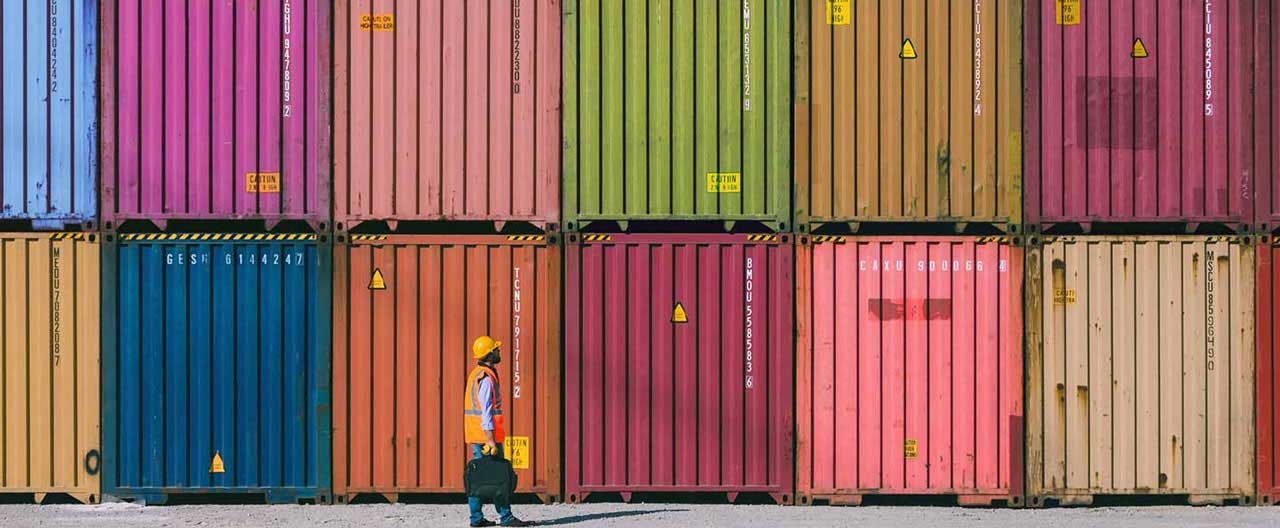How to protect your business from supply chain disruption

When a freighter stuck in the Suez Canal holds up your raw materials, how does your manufacturing company fill orders? What opportunities are lost to your bicycle shop when a pandemic halts production of bikes and bike parts from your Chinese suppliers? What happens when your custom car business relies on a specific paint color — and the one Japanese factory that produces it has been hit by a tsunami?
Understand your supply chain risk
Outsourcing, offshoring, and lean manufacturing are practices that can help streamline production processes, increase flexibility, and minimize costs. And today these capabilities are available to companies of every size and scope. But with reliance on an external supply chain comes less control over your organization’s ability to respond when your suppliers are unable to fulfill their orders on time — especially if you work with vendors and suppliers around the globe.
Your supply chain can be disrupted by various factors, such as:
- Weather and other natural catastrophes, such as earthquakes
- Political or economic upheavals
- Labor strikes
- Bridge failures or road closures
- IT failures or cyber criminals
- World health crises
- Vendor bankruptcy or insolvency
Many companies tend to focus on internal risks, but dependence on external vendors and suppliers is also a significant source of exposure. Supply chain delays and disruptions can seriously threaten your ability to conduct business by impacting production and distribution. The time it takes to find and onboard new suppliers can precipitously increase costs, while late orders and disappointed customers can reduce revenue and decrease market share. It can take years to recover from a supply chain failure.
So, how do you ensure the resiliency of your supply chain?
How can manufacturers can make their supply chains more resilient to current and future disruptions?
Chubb executives Erik Olsen and Mike Williams discuss solutions.


Incorporate supply chain resiliency in your business continuity plan
To protect your organization, you must first understand what makes it vulnerable. All organizations should have a formal, written business continuity plan (BCP) – a procedural document that lays out courses of action should a disaster strike, in order to minimize operational downtime and loss.
If your business relies on external vendors, be sure to identify potential supply chain risks as part of your BCP. This includes:
- Identifying supply chain managers to participate in your cross functional BCP team of subject matter experts (financial, insurance, strategy, operations).
- Mapping your business processes to your external supply chain dependencies and ranking areas of exposure. Where could a supply chain interruption prove just a bit problematic? Where could it cripple your business?
- Pinpoint your key suppliers — those your business relies heavily on, or whose goods are hard to replace. Then list second and third tier vendors, third-party manufacturers or subcontractors, warehouses, distribution centers, and transport and shipping partners.

Assess individual supplier risk
Each vendor or supplier will have its own sets of vulnerabilities, depending on many factors. For example, supplier facility construction type and emergency preparedness are important if it’s located in an area that’s prone to hurricanes or wildfires.
Based on known vulnerabilities, identify the types of events or hazards that are most likely to disrupt the supplier. Use tools such as a vendor/supplier questionnaire or checklist, as well an on-site assessment of the company’s operations.
Ensure vendor and supplier BCP compliance
Reliance on third parties requires diligent vetting, consistent management, and frequent review of your vendors.
- Thoroughly vet all suppliers with an eye towards supply chain integrity.
- Delineate and make contractual all vendor responsibilities to your business — from insurance you require, to late penalties, to disaster chain of communication.
- Monitor vendor compliance, such as up to date insurance certificates. There are services and apps that can help with this.
Reduce overall supply chain vulnerabilities
During a supply chain failure, according to the Harvard Business Review, “companies that are better prepared to act quickly have a competitive advantage.” To mitigate exposures from disruptions before they happen:
- Maintain an inventory of key materials and supplies. Keeping a safety stock of materials is effective for short-term interruptions, especially for companies with just-in-time or on-demand production schedules.
- Select and pre-qualify secondary suppliers before you need them, in order to minimize ramp up time. This process should be ongoing, to reduce the impact of the loss of a single or sole supplier.
- Consult your business insurance provider. Supply chain resiliency is a complex issue with many moving parts and considerations. Expert advice about mitigation steps and relevant insurance coverages plays an important role in managing your supply chain risk.
This document is advisory in nature and is offered as a resource to be used together with your professional insurance advisors in maintaining a loss prevention program. It is an overview only, and is not intended as a substitute for consultation with your insurance broker, or for legal, engineering or other professional advice.
Chubb is the marketing name used to refer to subsidiaries of Chubb Limited providing insurance and related services. For a list of these subsidiaries, please visit our website at www.chubb.com. Insurance provided by ACE American Insurance Company and its U.S. based Chubb underwriting company affiliates. All products may not be available in all states. This communication contains product summaries only. Coverage is subject to the language of the policies as actually issued. Surplus lines insurance sold only through licensed surplus lines producers. Chubb, 202 Hall's Mill Road, Whitehouse Station, NJ 08889-1600.

Seeking a business insurance quote?
We can help with that.
